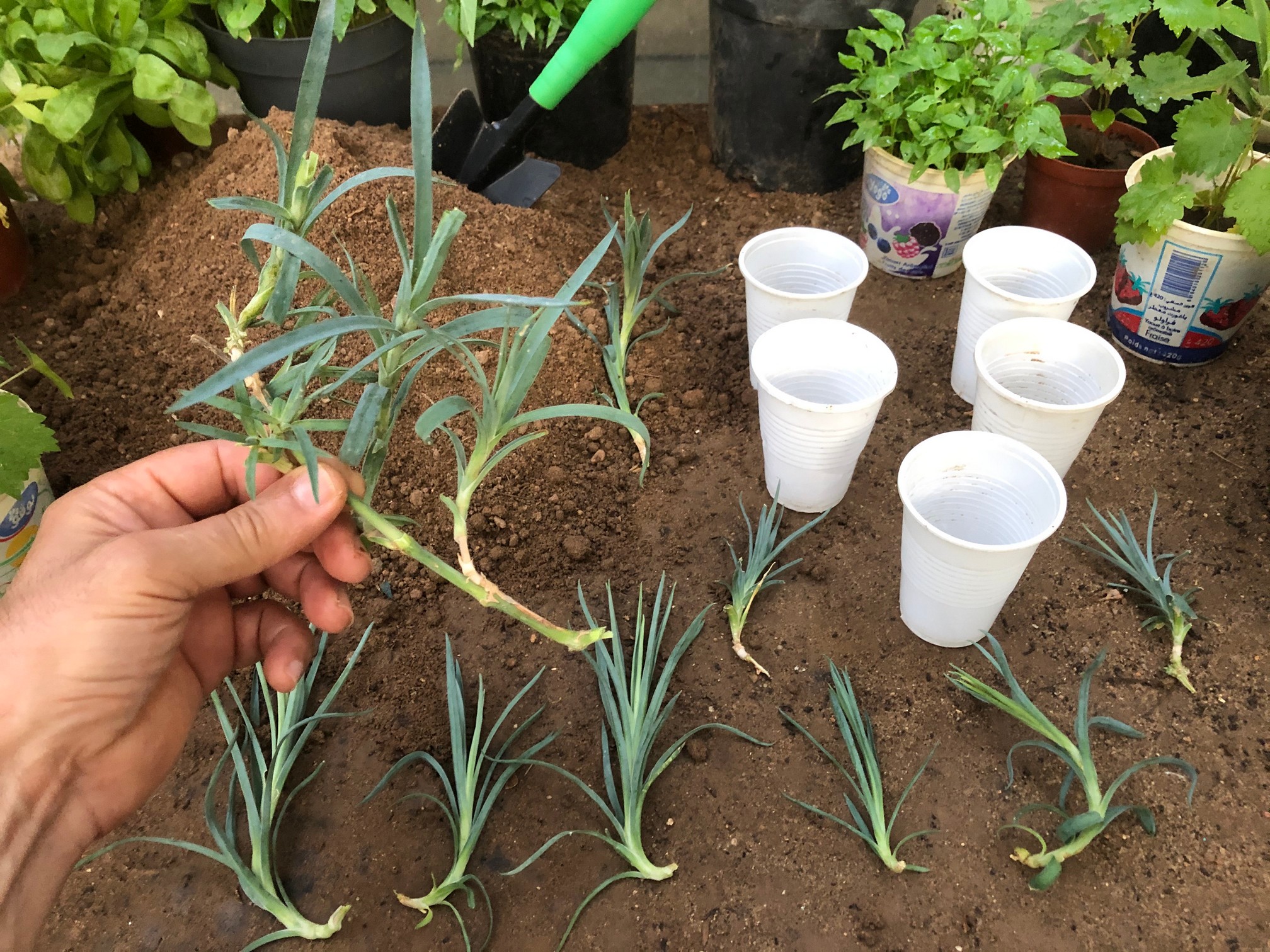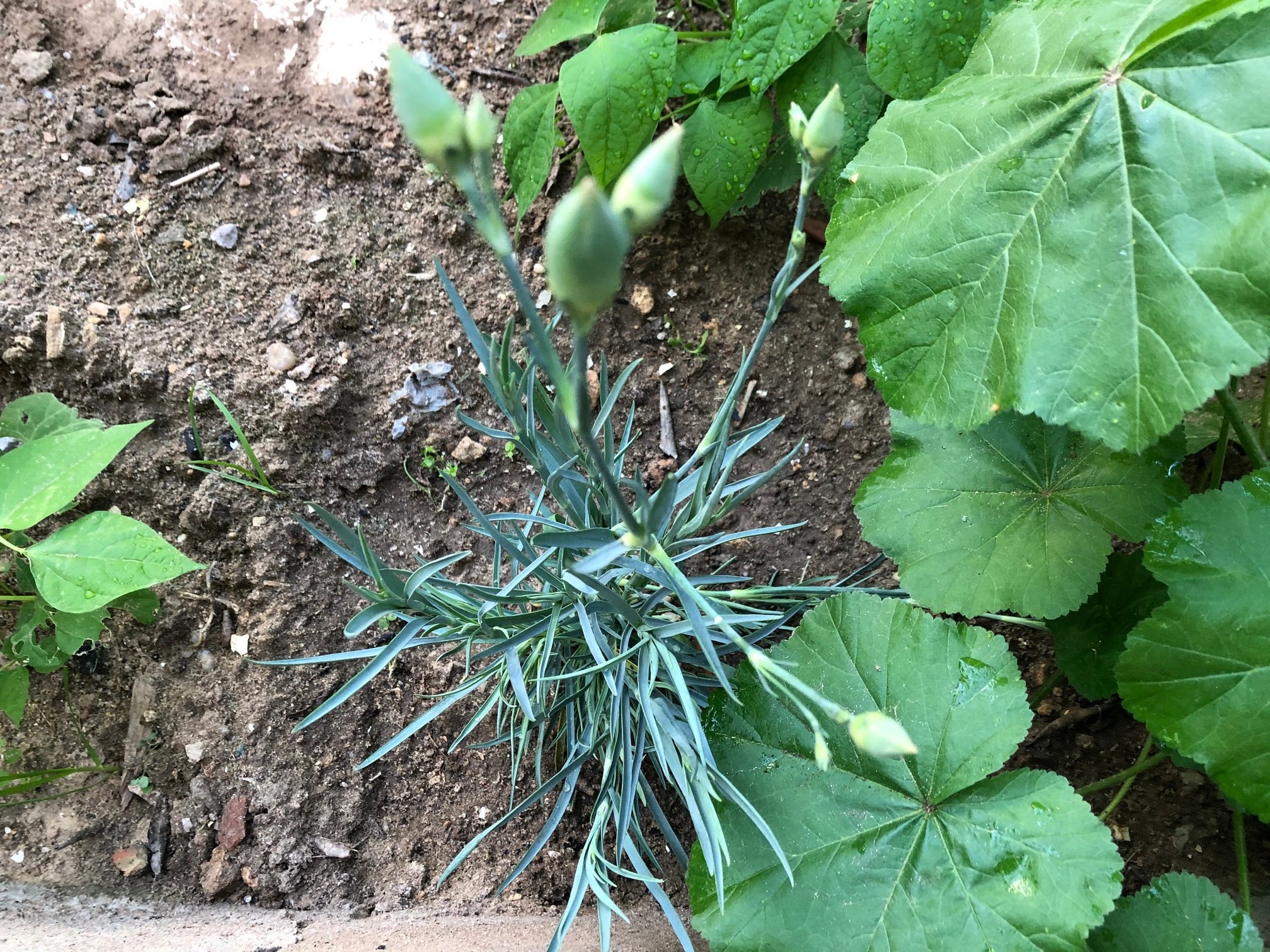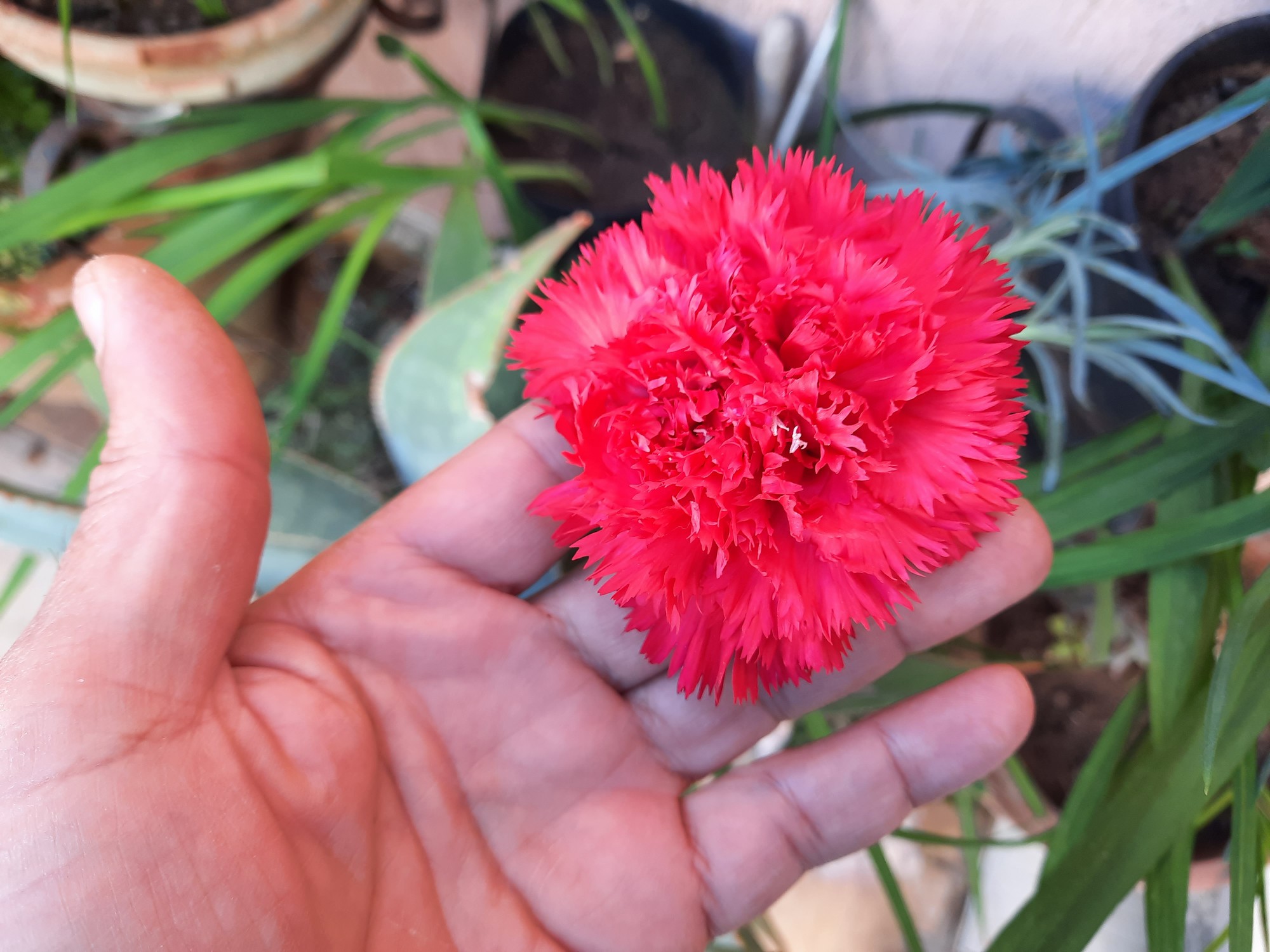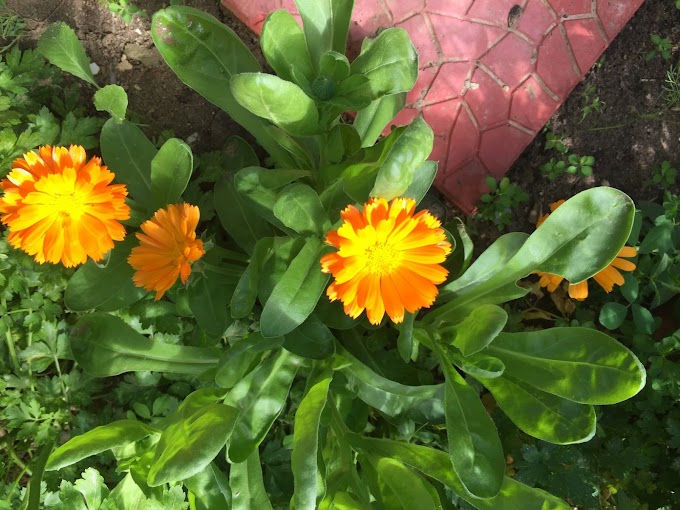The Advantages to Propagating Carnation Plants Using Cuttings
There are several advantages to propagating plants using cuttings
1. The new plant will be identical to the parent plant.
2. The new plant grown from the cutting will have the same foliage and flower colors.
3. Propagating a new plant via cuttings avoids the difficulties of propagating by seed. For example, by using cuttings, you could propagate a carnation plant that don't produce seed. Additionally, some seeds are difficult to germinate!
4. The best of all. A new carnation plant grown from a cutting will frequently mature faster and flower sooner than a plant grown from a seed.
How To Propagate Carnations From Cuttings
What you need:- A healthy carnation mother plant: I found that carnation cuttings taken from young mother plants root quickly and develop better.
- Good propagating soil: What is the best medium for rooting cuttings?
If you want your new cuttings to take and grow successful and flourish, you need to know which mediums are the best for propagating root cuttings! I think that potting soil, peat moss, perlite, vermiculite, and coco coir are among the very best mediums for root cuttings. (ads1)
- Some pots or plastic cups:
Good drainage is key to success, so choose pots or containers with drainage holes where excess water can trickle out.
I always prefer to use small cuttings approximately 5 to 7 cm, 2 to 3 inches in length. Small cuttings are advantageous in that there is less stem and foliage to maintain. A larger cutting is much more likely to stress before the roots develop. I found that smaller cuttings will develop roots faster and therefore quickly outperform larger cuttings.
- Snip new shoots about 5 to 7 cm, 2 to 3 inches in length from the tops of a healthy beloved, non-flowering carnation plant. For good success, always take cuttings early in the coolest hours of the morning. When the plants are less likely to wilt, and I recommend harvesting carnation cuttings by hand to prevent the spread of disease. The best time to take key cuttings is in the coolest hours of the morning.
- You can remove the lower set of leaves, however this is not actually necessary.
- Fill your containers or pots with moist potting mix. Keep in mind that good drainage is the key to success, so choose containers with drainage holes where excess water can trickle out.
- Pot up cuttings in around 10 mm deep in the potting mix, by inserting one-third to one-half their length into the medium. Maintain the vertical orientation of the stem, do not insert the cuttings upside down. Always make sure the buds are pointed up.
- Carnation cuttings strike very easily, there is no need to add a rooting hormone or other rooting agent before inserting into the potting mix.
- Put the cutting in the mix and firm the rooting mix around it.
- You can put several cuttings in the same pot as long as their leaves do not touch. But you have to use a bigger pot, and when they take and make roots you can transplant in single pots! But I don't use this method as it take much time!
- Once all your cuttings have been inserted into the mix, water your cuttings slowly and gently.
- Place your pots in a warm, bright spot but out of direct sunlight.
- Check every few days the rooting mix to make sure it is damp, and water as necessary. Good drainage is key to success, so choose a container with drainage holes where excess water can trickle out.
- The cuttings must be kept moist and out of direct sunlight and wind.
Direct sunlight and wind will quickly dry out the cuttings and with no roots they will almost certainly not survive.
- For carnation cuttings to root properly, they must be placed in greenhouse environments, maintaining humidity above 95%. I always keep my cuttings in my green house. If you don't have a greenhouse, you can create a makeshift greenhouse by placing your pot in a clear plastic bag.
- Place your carnation cutting in a bright light place, but avoid direct sunlight, which can be too powerful. A green house or a north or east-facing window make great locations for growing cuttings. Keep in mind that some cuttings root more quickly than others, so be patient. On average, it takes a month or two for your cuttings to root and become established enough that you can transplant plant them outdoors. You can see this by looking at the color of the growth, if the first several inches are lighter or greener than the rest of the cutting, that means you have fresh growth, and you have succeeded.
(ads2)
- Once your carnation new plants grow to about 10 cm or so, After about 5 weeks they should be ready to transplant into the garden or larger containers.
- Give them good care and your carnation flowers will bloom within the first year!
Watch How to Propagate Carnations by Cuttings Video
This is the most suitable and simple method of propagation for carnations, this method is very useful to reproduce those carnation plants that do not produce seeds or that produce a limited number of them. By following these simple tips, you are sure that you can always have your beloved plant around you to enjoy their beauty and fragrance!
Different varieties & colors of Carnation & Dianthus seeds available HERE that you won't want to miss!
Like This: Pin it for Later!
Creating new carnations from cuttings is a simple and affordable way to revive old plants. By adopting this technique, you can easily refresh your garden with lively, fresh carnation plants, guaranteeing ongoing beauty and wellness in your outdoor areas.
If you have any tips for growing and propagating carnations, we'd love to hear them - please share them in the comments below.
You want to read more:
Happy gardening!
This web site is a participant in the Amazon Services LLC Associates Program, an affiliate advertising program designed to provide a means for sites to earn advertising fees by advertising and linking to amazon. Some of the links to products on this site are affiliate links. These are products that I've used or recommend based from homesteading experience. I do make a small commission (at no extra cost to you) from these sales.(alert-warning)



















